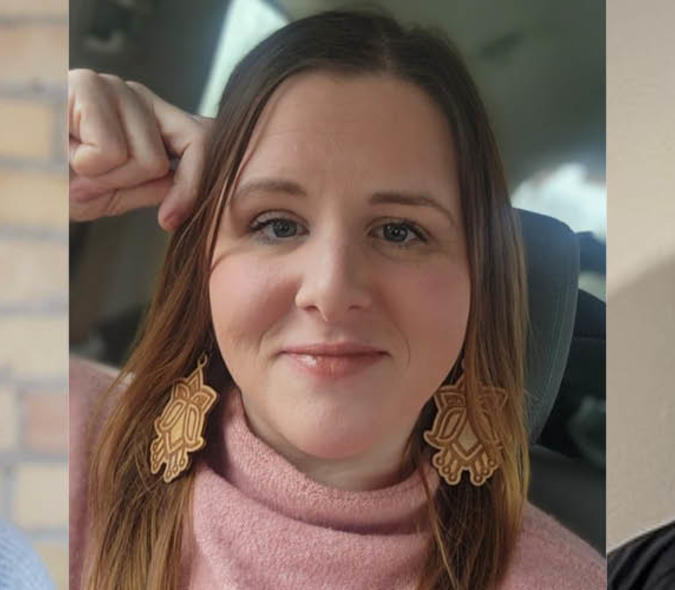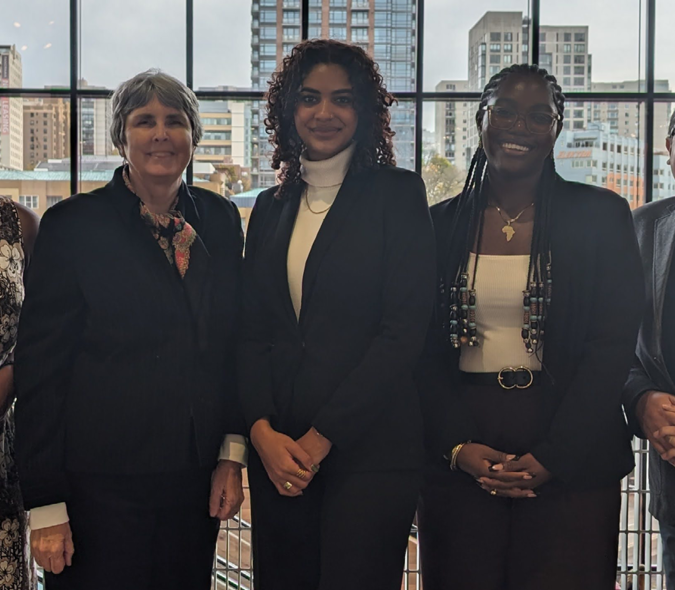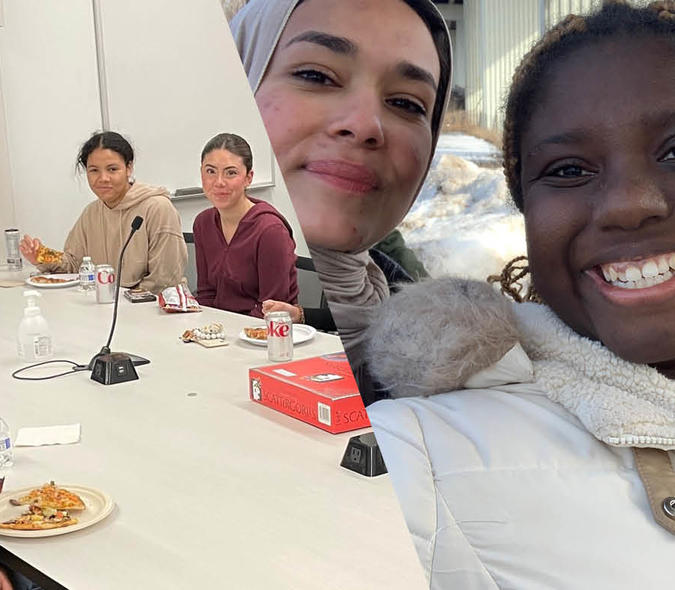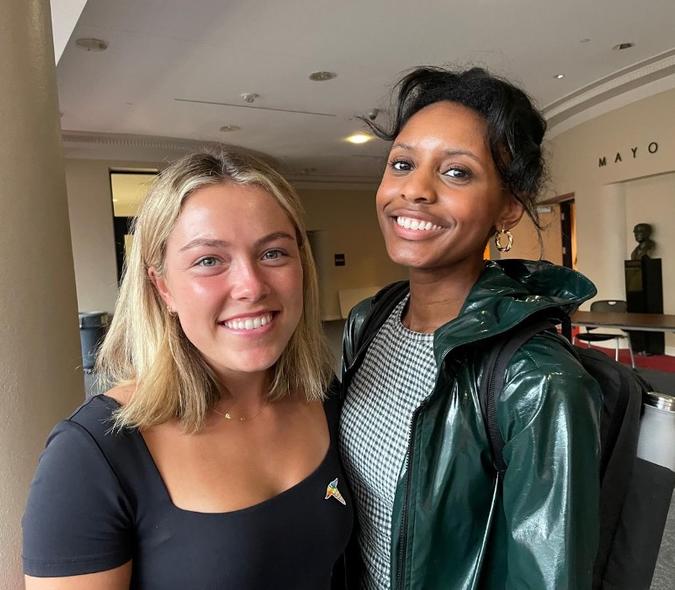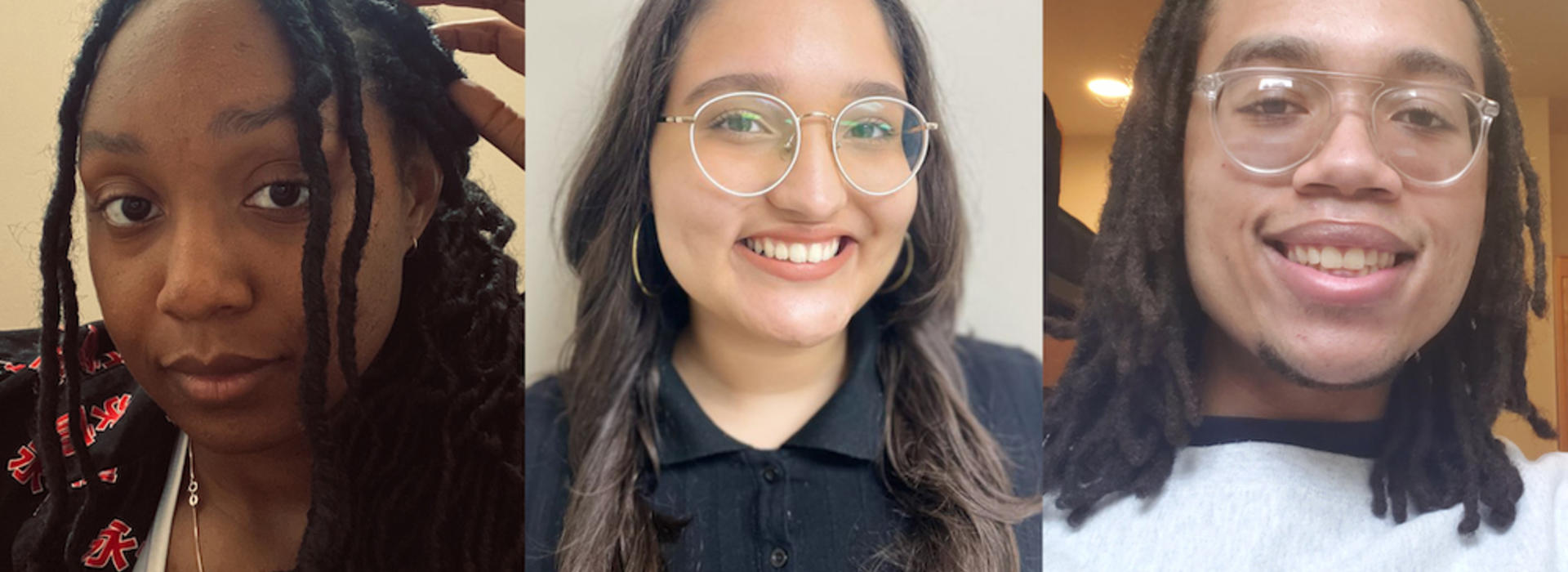
Life Sciences Summer Undergraduate Research Program Engages Underrepresented Students in STEM
The Life Sciences Summer Undergraduate Research Program (LSSURP) engages underrepresented students in STEM through hands-on research. The 80 LSSURP scholars from across the country present their research projects to culminate the 10-week program. LSSURP students share how this experience impacted them:
Danielle Chew-Martinez
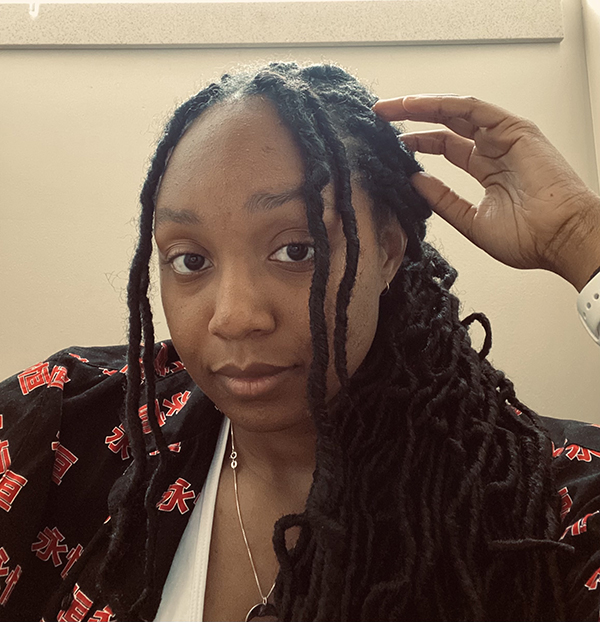
Danielle is a 20-year old afro-Latina from Prince George’s County, Maryland, and a junior chemistry major and biology and Spanish double minor at Howard University. She’s a member of the Karsh STEM Scholars Program geared towards increasing the number of underrepresented students earning STEM PhDs.
What was your LSSURP research project?
I worked on two projects centered around the diepoxybutane-formamidopyrimidine adducts of 1,3-butadiene.
Who was your mentor? How did they help in your learning experience?
This summer, I worked in Dr. Natalia Tretyakova’s lab in the Cancer and Cardiovascular Research building under the guidance of Caitlin Jokipii Krueger and Drs. Vijay Kumar and Suresh Pujari. The lab does significant work around epigenetics, nucleic acid chemistry and chemical carcinogenesis. Under the guidance of Caitlin and Drs. Kumar and Pujari, I was able to pick up skills in analytical and synthetic organic chemistry. My mentors are experts in analytical instruments like HPLC and mass spectrometry, as well as DNA chemistry. I learned a lot about instrumentation, graduate school and the ups and downs of research from working closely with
Them.
How did this program strengthen your interest in life sciences?
LSSURP has strengthened my interest in medicinal chemistry to understand the mechanisms behind disease development and propose solutions to diseases like cancer. Medicinal chemists are jacks of many trades and are able to apply a chemical approach to drug discovery. It is inspiring to know that despite cancer research being a predominantly biology-based field, there is a discipline where a strong chemistry/biochemistry background is advantageous in tackling the issue.
What are your future goals?
After undergrad, I plan on pursuing a PhD in medicinal chemistry and working in either the pharmaceutical industry or government policy. This summer, I have picked up a research interest in chemical carcinogenesis, but previously I wanted to work with natural products. I’d love to discover an intersection between the two in future research endeavors.
Anything else?
During my first few weeks in the lab, I was nervous and overwhelmed by all the information I had to digest, but as time went on, I gradually picked things up like making solvents for the HPLC or doing calculations on a fmol scale. When I moved to the synthesis side of the lab, I had to adapt again and make adjustments because more people were working around me. Still, even then, I could get a foundation by asking questions when I didn’t know where something was or how to do an appropriate technique. My mentors encouraged questions and were eager to help. One thing I have learned from this experience is to accept when things don’t work out because that’s research. Many times, my reactions did not work, which led me on a deep dive into why and figuring out what’s next. I generally don’t like leaving things unfinished, so I am constantly motivated by the “failed experiments” to keep going until it works out. I have come to understand the attraction of research and determined that it is the field for me.
Maria Del Mar Mendez Casillas
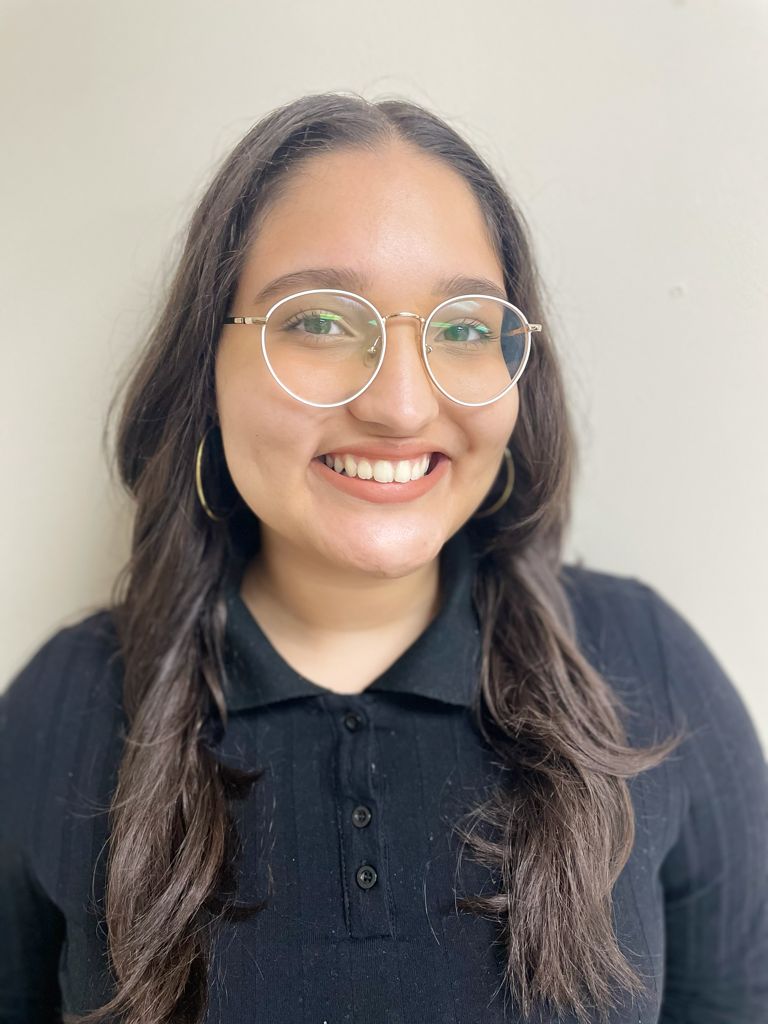
Maria is a senior at the University of Puerto Rico at Ponce majoring in biomedical sciences. She’s part of the Ponce Research Initiative for Scientific Enhancement Program (RISE) working in a Gastro-Lab exploring the implication of exercise and fat deposits in endometriosis. She has also been part of the Asthma Research Center Lab studying the role of PAR-2 in asthmatic and non-asthmatic Puerto Ricans.
What was your LSSURP research project?
My research project was based on collecting both in situ and in vitro 12 lead electrocardiogram and monophasic action potentials signals from reanimated large mammalian hearts.
Who was your mentor? How did they help in your learning experience?
My mentor was Renee C. Brigham, a PhD candidate. She helped me understand cardiac anatomy and physiology, the techniques necessary for conducting our experiments and in anything that I needed that was in her scope of experience. My principal investigator, Dr. Paul A. Iaizzo, was a key part of my learning experience this summer. His way of teaching is a very interactive, hands-on experience from the beginning of the surgery on the animal model to explaining every step of the procedure.
How did this program strengthen your interest in life sciences?
I’ve always known that I wanted to have a career in science and research, but didn’t know in what field. The LSSURP program helped me narrow down the scope of my PhD. This research opportunity and the LSSURP program helped me strengthen essential skills such as teamwork, logical thinking and problem-solving which are vital for graduate school.
What are your future goals?
My near future goals are to pursue a PhD in molecular and integrative physiology because its integrated approach would provide the opportunity to work on a wide variety of disciplines, including immunology and physiology. This will contribute to developing better early detection, improved methods and potential new treatments that will improve disease management and the patient's quality of life.
Aaron Patterson
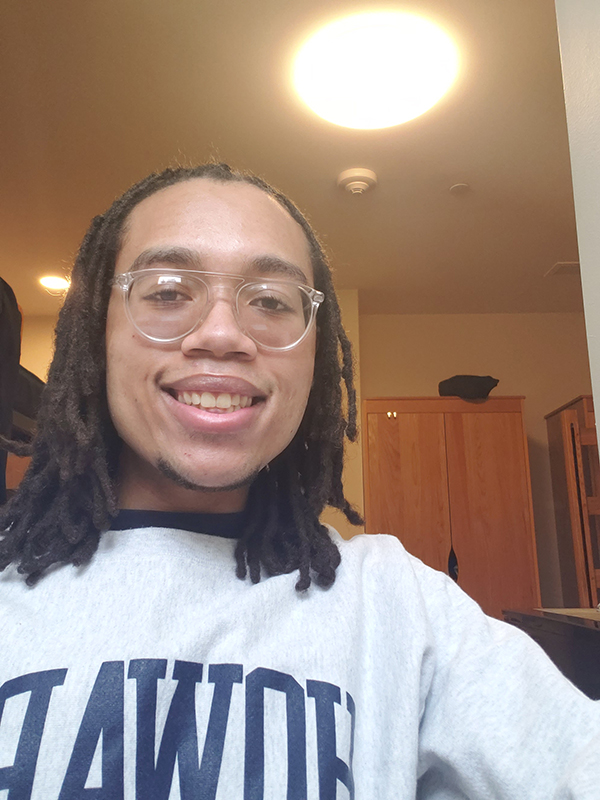
Aaron is a junior biology and psychology major at Howard University and is part of the Karsh STEM Scholars Program. His mom is a math professor and father a former engineer, so he’s always been encouraged to pursue a career in STEM. He was also influenced by his aunt, who attended Howard University and later became a psychiatrist.
What was your LSSURP research project?
My project focused on investigating the activity of the cerebral cortex during locomotion. More specifically, I was investigating the effect that changes in velocity had on the neural activity and the correlation of activity between different cerebral cortical regions. My principal investigator was Tim Ebner, MD, PhD.
Who was your mentor? How did they help in your learning experience?
My mentor was neuroscience graduate student Sarah West. What I most appreciated about Sarah was that she made sure not to underestimate my abilities or expect too much of me. At the start of LSSURP, she spent a lot of time making sure I understood how the lab worked, but she still trusted me to learn MATLAB and read preexisting literature on my own. Eventually, as the summer went on, I gained so much autonomy that at times I felt like an independent member of the lab. However, even during the later stages of my project, Sarah made sure to steer me in the right directions. I always felt as though Sarah respected me as an intelligent member of the lab, but she was also realistic about what I still had to learn. At times I felt overwhelmed, but Sarah’s guidance showed me that I could overcome most situations by recognizing my own ability, and that it was okay to step away from what I couldn’t do.
How did this program strengthen your interest in life sciences?
I feel as though LSSURP really made me understand what types of research I enjoy doing. Before coming to LSSURP, I thought that my interests in neuroscience only lied with abnormal psychology and addiction, but now I can see that I also find satisfaction in basic science, as well as the very code intensive data analysis that was necessary for the project. I also feel like the program really solidified my passion for research. Previously I had a few doubts, but LSSURP has really shown me that I am a natural fit for the research process as well as the community in which research happens.
What are your future goals?
My future goals are not entirely set in stone yet, though I do have a few fields in which I’m interested. I’ve always been passionate about mental health, so I want to ultimately go into a discipline in which I’ll be able to work with mental health patients alongside my time as a researcher. I am mainly considering either a PhD in clinical psychology or in clinical neuropsychology. No matter what field I work in, I want my work to positively impact the mental wellbeing of underserved Black communities and change the limited framework through which we view mental health.
Anything else?
I tremendously enjoyed meeting and spending time with the other LSSURP students. The program was filled to the brim with other wonderful and intelligent students. It’s been such an affirming experience to be around them and consider myself one of them.
